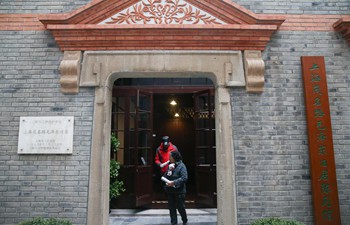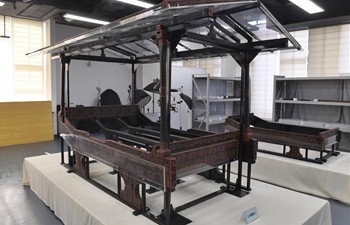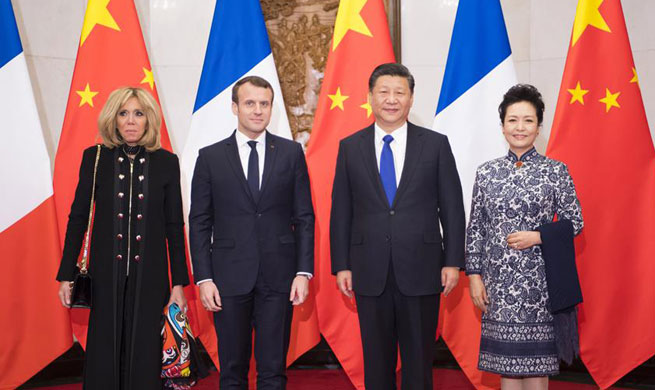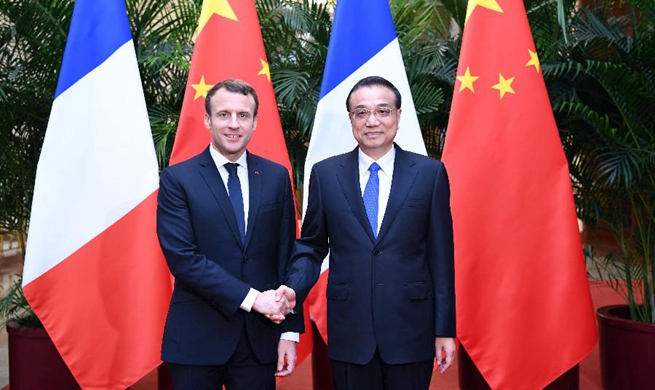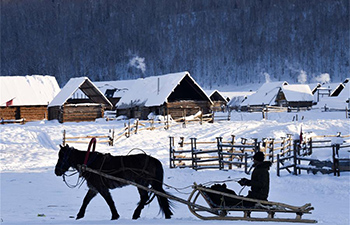BEIJING, Jan. 9 (Xinhua) -- Residents in the northwestern Chinese city of Lanzhou who long for their own homes can say goodbye to purchase restrictions in the new year.
Starting Monday, certain areas in the city, capital of Gansu Province, have opened for home purchases after more than eight months of restrictions, and home purchases in the rest of the city will require fewer qualifications.
However, homeowners in Lanzhou's core and most popular areas may not sell their properties within three years of purchase.
The "carrot and stick" approach in Lanzhou indicates that Chinese cities are taking more flexible and subtle steps to help digest stockpiles of houses while keeping the lid on speculation.
In a novel move, Nanjing, capital city of east China's Jiangsu Province, fine-tuned its housing purchase policies with gestures to attract top talent.
The city announced last Sunday that high-end professionals would be allowed to buy their first homes in Nanjing without holding a local household certificate and could enjoy bigger loans via the housing provident fund.
In the past few weeks, Zhengzhou, Wuhan and Xi'an have also adjusted their housing policies, including offering subsidies for young professionals to settle in the cities.
"Policies to manage the property market are becoming more flexible in China this year, with different policies targeting different cities and even areas within a single city," said Zhang Dawei, chief analyst at Centaline Property.
China's housing market last year began with a red hot start with soaring prices in some major cities, but ended on a cool note after local governments rolled out a string of restrictive measures echoing the central government's call that housing is for living in, not for speculation.
About 110 cities and government agencies introduced more than 270 restrictions to tame the housing market, with Beijing implementing over 30 cooling policies, according to Centaline Property.
Due to the broad efforts, both investment and sales in China's property sector slowed in the first 11 months of 2017. Official data showed real estate investment rose 7.5 percent year-on-year from January to November, down from 7.8 percent in the first 10 months.
Indiscriminate housing purchase restrictions in some cities did little to help stabilize the market, and more cities are expected to follow suit this year to diversify their tools, Zhang added.
Different policies for different housing will support first-home buyers and upgraders in China and curb speculation in 2018, Wang Menghui, minister of housing and urban-rural development, said at a meeting last month.
We should move faster to introduce a housing system that ensures supply from multiple sources, provides housing support through multiple channels, and encourages both home purchases and rentals, Wang added.
Large and medium-sized cities with net population inflow should step up development of the housing rental market and set up state-owned home rental companies, while third- and fourth-tier cities and counties should continue to reduce unsold housing, according to the minister.
Beijing said last December that it encourages state-owned enterprises to build affordable apartments on their land.
A statement released after the Central Economic Work Conference last December said that China will maintain policy consistency and continuity and adopt differentiated property policies.
"Gradually, we will see long-term promotion of a steady, healthy housing market this year, which will better coordinate land, fiscal and taxation policies and resource allocation," said Hu Jinghui, vice president with 5i5j.com, a leading property agency platform.
Crackdowns on speculation will continue, while more support will be offered to the rental market to ensure that houses are not investments, but homes, Hu added.






